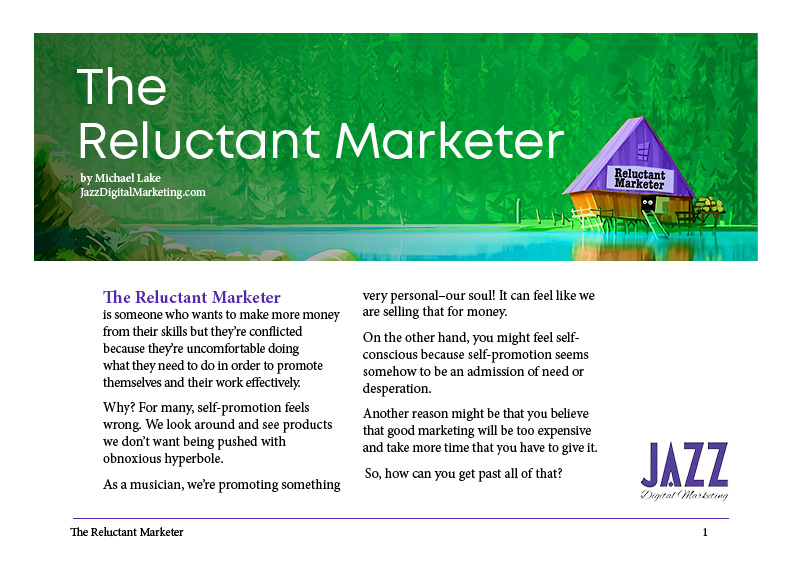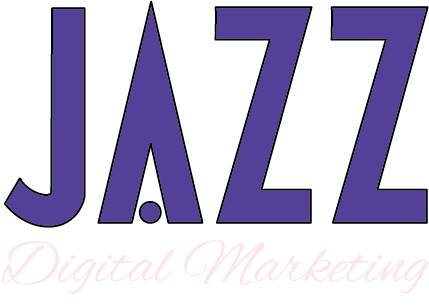Making a traditional living as a musician today is harder than ever. Record labels hand out fewer advances and royalties, streaming platforms pay the average musician just enough to cover a few cups of coffee, and for most, local gigs barely put a dent in the rent. But here’s the good news: the tools to market your music, connect with fans, and create new income streams are more accessible and affordable than ever. You just need to learn some new skills and then know how to begin.
I believe that the first place to start is with a fresh mindset, one that recognizes that you do have the power to change your situation. Abandon your belief that you are a victim. Lose your resentment toward the economic power of large corporations controlling streaming, broadcasting, and music distribution. They are not the enemy. Your cynicism and inactivity are.
You have tools at your disposal never dreamed of even 25 years ago that connect you with the five and a half billion people who are online. Word Press, social media, eCommerce platforms, and millions of videos showing you how to use it all are as accessible as the phone in your pocket or the computer on your desk.
But you have to be willing to dive into the waters of web and commerce, and begin a steep learning curve. Yeah, it’s steep, and it’s slow-going for the newbies. There, I said it. Because I want to set your expectations exactly like those I set for my clients. But what is your alternative? Stand by and idly watch everybody except you make money off your art?
Start here
Let me offer you three things to get you started taking your first steps toward monetizing your talent.
1. Take an accounting of the hard and soft assets you own. Hard assets includes your music in the form of digital files on a hard drive to hand written manuscripts in a box to CDs and vinyl. It includes arrangements and lead sheets. It could include books you’ve written or are close to being finished. What else have you created that is doing nothing for you at the moment?
Soft assets include your skill as a teacher, composer, arranger, or of course, a player of your instrument. What other skills do possess that could solve problems for others?
Write them all down and don’t be modest. They might not all be marketable, but at this point, list them all.
2. Create an online platform for attracting the audience that needs and wants those hard and soft assets of yours. You can make due with social media but relying on a third-party platform like Facebook can be precarious. You are renting space owned by someone else and they can and often do change the rules that can hurt your business overnight. Also, social media is a place to be social, not necessarily to set up a store to sell, sell, sell. You want to use social media, but understand its place.
You can use a third party content management platform like Squarespace, Wix, or Bandzoogle that already have a readymade means for collecting Paypal, credit cards, and other forms of payment. The upside is that they can be used by you with a bit of instruction, do not cost much in the short run, and the technical issues are pretty much taken care of for you.
The downside is that they are limited in terms of their design options, third-party integrations for add-ons like courses and sales funnels, accommodation for phones and tablets, search optimization, and the fact that you’ll pay for their platform month after month forever.
All that said, starting with a simple Bandzoogle site while you learn the ins and outs of online sales and marketing could be a great first step toward eventually having your own website.
3. Start learning the art of online promoting and selling. This will probably be your most difficult step. Too many musicians resent having to sell their art. “If people want my music, they will find me.” No. ‘Build it and they will come’ only works in Kevin Costner films. Persuasion is a science and an art that must be learned.
In my experience, artists come mainly to this game either being too shy about self-promotion or too bombastic in their approach. The middle ground is where you assess who your ideal customer is, find where they spend their time online, slowly introducing yourself all the while being empathetic about their goals and desires, and then letting them know how you might help. A heaping dose of generosity never hurts either.
You need three ingredients for sales success. An effective hook, a well-told story, and a good close (asking for the money). But this comes only after laying the foundation of assessing your assets, building your online store, and starting to learn the basics of selling.
Success most always starts slow unless the Universe blesses you with a bit of unexpected luck. And I am a believer that we make our own luck, but set out to travel the path of deliberate and methodical hard work. Enjoy that work and do your best to make good decisions constantly along that path.
Reach out to me if you think I can answer a question or two if you choose to begin this journey. Hey, you figured out how to play a difficult musical instrument. I know you can become a master of your financial future if you apply yourself!!








